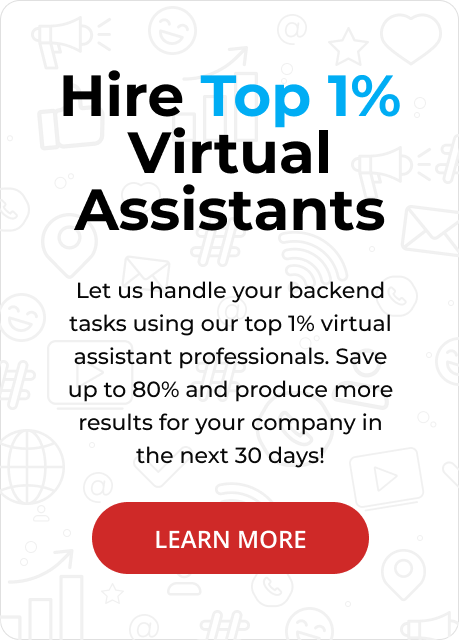GPT-5 vs GPT-4 shows how advanced AI is transforming virtual assistant capabilities, making them faster, smarter, and more accurate. Stealth Agents harnesses this power to deliver tailored AI virtual assistant services that save you time, streamline your workflow, and help grow your business efficiently.
Artificial intelligence is evolving fast, and GPT-5 is set to bring even bigger improvements over GPT-4. As businesses and individuals rely more on AI for automation, virtual assistants are becoming more innovative and efficient.
With better reasoning, faster responses, and improved accuracy, GPT-5 could take AI-powered virtual assistant tools to the next level. This would mean smoother communication, better task management, and more reliable AI-driven support for businesses worldwide.
While GPT-4 already introduced impressive multimodal features, GPT-5 is expected to enhance its ability to seamlessly process text, images, and audio. In this article, we’ll explore how GPT -5 compares to what’s changing and how it will impact industries that depend on AI-driven technology.
Behind the Scenes: How GPT-5 Is Shaping Up
The journey from GPT-4 to GPT-5 has been marked by innovation, testing, and improvements to make AI more powerful and reliable. OpenAI has focused on refining the model to better serve businesses, especially in B2B industries, where AI-driven automation is becoming essential.
BPO companies are expected to benefit significantly from GPT-5, as it enhances AI-powered customer service, chatbots, and operational efficiency. Additionally, content marketing agencies will see improvements in AI-generated content, making it more human-like, contextually accurate, and engaging for audiences.
One of the most significant developments is the expansion of multimodal capabilities, meaning GPT-5 may seamlessly process and generate text, images, and even voice or video content. As OpenAI finalizes GPT-5, businesses across different sectors are preparing to integrate this next-level AI into their workflows for increased productivity and better customer engagement.
Key Differences Between GPT-5 and GPT-4
As AI technology advances, GPT-5 introduces several improvements over GPT-4, making it more efficient, accurate, and versatilHere’se’s a look at the key differences between the two models:
1. More Accurate and Context-Aware Responses
One of the most significant improvements in GPT-5 is its ability to understand and retain context better in long conversations. Unlike GPT-4, which sometimes loses track of previous prompts, GPT-5 ensures more coherent responses over extended interactions. This is especially useful for VA companies that rely on AI-driven virtual assistants for seamless customer support. With better accuracy and fewer repetitive answers, businesses can deliver a smoother experience to their clients.
2. Stronger Multimodal Capabilities
While GPT-4 introduced multimodal functionality, it was still limited in certain aspects. GPT-5 takes it further by integrating text, images, and potentially audio and video processing. Industries like HVAC services can use AI to generate visual repair guides, voice-enabled troubleshooting, and more interactive customer support. By making AI more interactive, GPT-5 is set to revolutionize how businesses handle technical and customer-facing tasks.
3. Improved SEO and Content Optimization
Content marketing agencies widely use AI-powered content creation tools, and GPT-5 offers even better SEO optimization, keyword placement, and structured content suggestions. With deeper integration of AI-driven domain authority checker tools, businesses can analyze backlinks, optimize keywords, and improve their search rankings more effectively. The ability to create SEO-friendly blogs, ad copies, and landing pages makes GPT-5 a game-changer for digital marketers and content creators.
4. Expanded Context Memory & Retention
GPT-5 introduces a larger memory window, allowing it to remember and recall past interactions more effectively. This is a significant upgrade over GPT-4, which often had limitations in recalling previous prompts. For VA companies, AI assistants can remember customer preferences, past issues, and ongoing tasks, leading to a more personalized and productive virtual assistant experience. This also helps in industries like BPO companies, where AI chatbots must maintain context for better customer satisfaction.
5. Enhanced Fact-Checking and Reduced Hallucinations
One of the common issues with GPT-4 was the occasional generation of incorrect or misleading information. GPT-5 integrates advanced fact-checking algorithms to reduce inaccuracies and enhance credibility. This is particularly beneficial for content marketing agencies, as they can now generate AI-assisted content with higher accuracy and fewer errors. The ability to verify sources and cross-check information ensures better trustworthiness in AI-generated content.
6. Faster and More Efficient Performance
AI processing speed is crucial for businesses that rely on real-time AI responses, such as HVAC services and customer support teams. GPT-5 is expected to be significantly faster than GPT-4, delivering quicker replies, better workflow automation, and reduced processing times. This means that businesses handling high volumes of customer interactions—like BPO companies—will benefit from a smoother and more efficient AI-powered system.
7. Greater Customization & Personalization
GPT-5 introduces custom AI behavior tuning, allowing businesses to train the model to match their specific brand voice, industry needs, or customer requirements. VA companies can now create AI-driven assistants that reflect their business identity and cater to client’s needs. Similarly, content marketing agencies can generate AI-assisted articles and social media content that aligns with their brand tone and target audience. With this level of customization, AI becomes more useful for specialized industries, from HVAC services to finance and healthcare.
What Sectors or Industries Can Benefit the Most from GPT-5?
With GPT-5 bringing advanced AI capabilities, several industries are set to benefit significantly from its improved reasoning, speed, and accuracHere’se’s a look at the sectors that will gain the most from this AI evolution:
1. Virtual Assistant & BPO Companies
VA and BPO companies will significantly improve with -5’s5’s expanded context memory and faster response times. AI-powered virtual assistants can now handle more extended conversations without losing context, making them more effective for customer service, appointment scheduling, and administrative tasks. With better personalization and automation, businesses can improve efficiency while reducing human workload.
2. Digital Marketing & Content Creation
Content marketing agencies can leverage -5’s5’s improved SEO capabilities, fact-checking, and natural language processing to quickly create high-quality, optimized content. AI-powered tools can now assist with blog writing, ad copy, social media posts, and even video script generation. Integrating AI-driven domain authority checker tools can also help businesses analyze backlinks and enhance their SEO strategy.
3. E-Commerce & Retail
Online businesses can benefit from -5’s5’s advanced product recommendations, AI-powered customer support, and personalized shopping experiences. Chatbots can provide real-time customer support, helping shoppers find the right products and answering inquiries instantly. AI-driven automation can also assist in inventory management, pricing optimization, and eCommerce marketing.
4. Healthcare & Medical Services
The healthcare industry is expected to gain from -5’5’s ability to analyze large volumes of medical data, assist with diagnostics, and provide accurate medical insights. AI can help in patient management, drug discovery, and even telemedicine applications, improving efficiency in hospitals and clinics. Additionally, -5’s5’s ability to handle medical research and generate summaries of clinical studies can benefit healthcare professionals.
5. Legal & Financial Services
Law firms and financial institutions will benefit from -55’5’sability to process complex legal and financial documents quickly and accurately. AI can help with contract analysis, legal research, fraud detection, and risk assessment. With improved context retention and logical reasoning, GPT-5 can assist professionals in drafting reports, summarizing cases, and generating financial insights with greater accuracy.
6. HVAC & Home Services Industry
The HVAC services industry can use AI to enhance customer support, predictive maintenance, and appointment scheduling. With multimodal AI capabilities, GPT-5 can generate step-by-step troubleshooting guides using images, text, and rodeo. AI chatbots can also provide real-time customer assistance, helping homeowners troubleshoot HVAC issues before booking a technician.
7. Education & E-Learning Platforms
AI-powered e-learning tools, tutoring platforms, and online education providers will see improvements in personalized learning experiences, real-time student support, and automated grading. GPT-5 can offer more intelligent, interactive AI tutors that adapt to students’ learning styles. Educators can also use AI to generate study materials, quizzes, and lesson plans efficiently.
Challenges & Risks of GPT-5 Adoption
1. High Computational Costs & Accessibility
- GPT-5 requires massive computing power, making it expensive to train and deploy.
- Small businesses and startups may struggle with the cost of AI integration, limiting accessibility.
- Cloud-based solutions might help, but companies relying on on-premise AI models may face scalability issues.
2. Ethical Concerns & AI Regulations
With AI models becoming more powerful, ethical concerns around data privacy, misinformation, and bias are growing.
- Governments and regulatory bodies may impose stricter AI laws, affecting companies’ use of GPT-5.
To prevent misinformation,
- BPO companies and virtual assistant services must ensure responsible AI implementation.
- If not monitored, AI-generated content could lead to ethical dilemmas in industries like journalism and legal services.
3. Risk of Job Displacement
- As AI automation improves, some industries—such as customer service, administrative roles, and content marketing agencies—may see a shift in human labor needs.
- VA companies that rely on AI-powered chatbots and assistants may reduce hiring for traditional roles.
- Businesses must focus on retraining employees for AI-assisted roles rather than complete job replacement.
4. Accuracy & AI Hallucinations
Despite improvements in reasoning, GPT-5 is not 100% accurate and may still generate misleading or fabricated responses.
- Industries that require precise and factual information, such as healthcare, finance, and legal services, must apply human oversight.
- Companies using AI for SEO purposes, such as domain authority checker tools and content marketing agencies, must fact-check AI-generated content before publishing.
- OpenAI is improving fact-checking capabilities, but human review is still essential.
5. Security & Data Privacy Risks
With increased AI usage, cybersecurity threats, and data privacy concerns will rise.
- Businesses using AI for customer data analysis must ensure strong security measures to prevent breaches.
- AI models may store user inputs, raising data tracking and confidentiality concerns.
- HVAC services, healthcare providers, and financial institutions using AI-powered automation must comply with privacy regulations like GDPR and HIPAA.
How Stealth Agents Leverage AI for Business Growth
As an outsourcing and digital solutions leader, Stealth Agents integrates AI-driven strategies to enhance productivity, efficiency, and client success. AI is shaping business growth at Stealth Agents:
- AI-Powered Virtual Assistants – Using advanced AI models, Stealth Agents optimizes virtual assistant services to improve customer support, scheduling, and administrative efficiency.
- SEO & Content Automation – AI tools assist in keyword research, content generation, and performance analysis, helping businesses stay ahead in search rankings.
- Data-Driven Decision Making—Stealth Agents leverage AI-powered insights to help clients analyze trends, predict market shifts, and make informed business decisions.
- Enhanced Customer Experience – AI chatbots and automation tools enable faster response times, personalized interactions, and seamless customer service solutions.
- Streamlined Workflow Automation – AI integration in daily operations allows businesses to scale efficiently while reducing manual tasks.
Final ThoughtsWhat’st’s Next for AI
The leap from GPT-4 to GPT-5 marks another step toward a future where AI plays a central role in business, creativity, and problem-solving. With enhanced reasoning, multimodal capabilities, and improved contextual understanding, GPT-5 is set to revolutionize industries ranging from B2B services to content marketing agencies and virtual assistant companies.
However, alongside its benefits, businesses must also address ethical concerns, security risks, and the balance between AI automation and human expertise. As AI evolves, the focus will shift toward more reliable, transparent, and adaptive models that work seamlessly across different sectors.
Whether improving workflow automation, enhancing customer service, or optimizing content strategies, companies that embrace AI early—like Stealth Agents—will have a competitive edge in the digital landscape. Looking ahead, GPT-6 and beyond could bring even more groundbreaking innovations, pushing AI closer to artificial general intelligence (AGI). The key to success will be leveraging AI responsibly while maintaining a human touch in business and technology.













